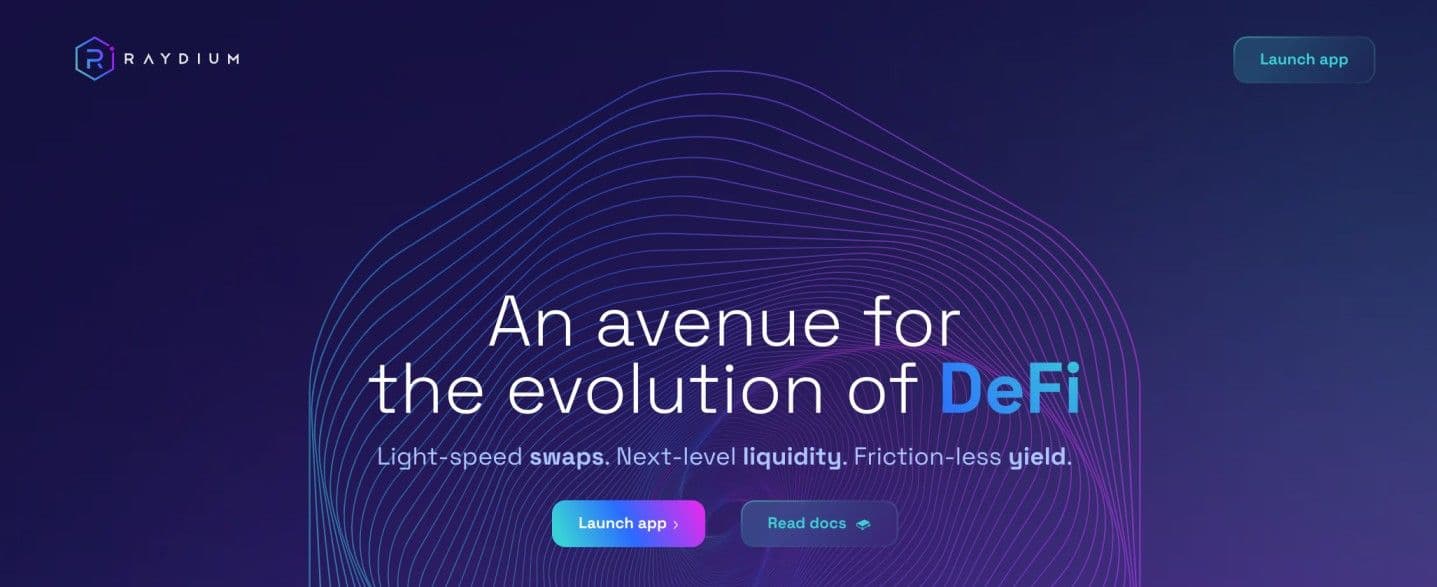DEX Contenders – Sushiswap Or 1inch?
The decentralized finance sector is growing rapidly. In this article, we will be looking at the difference between SushiSwap and 1inch DEX.

Decentralized finance(DeFi) is a financial structure that does not rely on intermediaries or a central body to execute transactions. In most cases, DeFi platforms utilize smart contracts to implement transactions. This way, users can access vital services without worrying about external control. Following the exponential growth of cryptocurrencies in early 2021, DeFi protocols like SushiSwap and 1inch have also attracted more investors.
Today, DeFi platforms aim to provide traditional financial services with digital assets. So, if you want to save, take loans or even invest, you can do these and more through DeFi. This open-source alternative to traditional finance is limitless and strives to provide error-free services, thanks to smart contracts.
SushiSwap is arguably one of the most popular decentralized exchanges (DEXs). Quite similarly to UniSawp, it offers swapping, staking, borrowing, and other related services. On the other hand, 1inch is a decentralized exchange aggregator, and it leverages technology to connect users to the best swapping routes. In a way, these platforms have their similarities. Still, their differences can help you make a better decision when considering the DEX platform to use.
What Is A Decentralized Exchange (DEX)?
A decentralized exchange is a platform that offers peer-to-peer services between two parties. In this case, a central body is eliminated, enabling users to transact directly. These platforms try to correct some problems associated with centralized exchanges, thereby saving time while maximizing satisfaction.
In some cases, the platform has an automated system that assists the parties in completing their transactions. To maintain seamless and swift services, DEX uses blockchain technology and also smart contracts. Smart contracts are known as codes embedded in the blockchain. They execute transactions without the need for human intervention.
In contrast to DEX, central bodies control centralized exchanges (CEXs), resulting in delays in transactions. When using CEX, you may need to follow some procedures. Unlike Decentralized exchanges, CEXs are companies that are focused on maximizing profits. Similarly, these platforms make their own decisions without relying on a community.
What is SushiSwap?
SushiSwap is a decentralized exchange operating on the Ethereum blockchain. Like other decentralized finance, SushiSwap utilizes liquidity pools to manage a trading platform. In 2020, Chef Nomi—a pseudonymous group, founded the relatively new exchange.
According to some reports, SushiSwap’s programmers created the platform by utilizing UniSwap’s code. The buzz surrounding this exchange started when its native token called SUSHI entered the game. Additionally, the founders promised to reward liquidity providers with tokens if they locked funds into the protocol. This attracted numerous investors, especially since it also promised more attractive rates.
As in other DEXs, the community decides on everything implemented on SushiSwap. Because there is no central body, everyone who owns the governance token, SUSHI, can vote on decisions. This happens on different decentralized platforms to prevent the centralization of power.
How Does SushiSwap Work?
SushiSwap utilizes its native token for governance. So, if you want to vote on proposals, you need to own SUSHI. It’s crucial to understand that the token is one of the significant differences between UniSwap and SushiSwap. Governance rightexist across DeFi platforms, streamlining the decision-making process.
People drop suggestions on SushiSwap Improvement Proposal. After this, people holding SUSHI can vote on their preferred proposal, making the platform under the control of the community. Everyone loves inclusivity, helping this protocol grow exponentially within a short period.
Similarly, Sushi utilizes a protocol known as automated market-making(AMM). This mechanism enables users to swap digital assets through the use of smart contracts. Most decentralized exchanges have replaced order books with AMMs, helping the platform create liquidity.
Order books are traditional means of keeping records and setting prices, but many reports showed that human market markers manipulate markets. This, in turn, made them largely unreliable leading to the creation of an automated system. Automated systems are usually free from human sentiments and also provide accurate figures.
When investors lock their money into protocols, they are creating liquidity. So, to encourage more cash flow, SushiSwap rewards them with a certain percentage, creating an alternative income source. This process is known as yield farming. Yield farming is the process of staking or lending digital assets to get high returns.
What Is 1inch?
Many decentralized exchanges sell cryptos at different prices. For instance, SushiSwap may sell Bitcoin for a price lower than what UniSwap charges. This makes it crucial to buy from a platform charging the lowest—and this is where 1inch comes in.
1inch is a decentralized exchange aggregator working towards getting the lowest prices across platforms. You see, crypto buyers struggle to find DEXs with the lowest prices and best liquidity. Thankfully, aggregators are created to search for those platforms for you.
Leveraging complex algorithm technology, 1inch searches across platforms to find the most suitable provider. It gives access to more than 100 liquidity sources from numerous platforms. According to the aggregator, it has around 50 liquidity sources on Ethereum and a couple of others from Binance Smart Chain (BSC) and Polygon.
Sergej Kunz and Anton Bukov founded 1inch in 2019. However, before they created this aggregator, they had experimented with arbitrage bots. In August 2020, the platform was officially launched, resulting from the funding conducted for its creation. It raised almost $3 million during the first funding and was then established as one of the first aggregators. Similarly, it also launched Mooniswap in late 2020.
How Does 1inch Work?
1inch gives voting rights through its governance token called 1INCH. Like in other decentralized platforms, community members can vote on proposals when they own the governance token. This prevents power from being concentrated in a central body. Similarly, 1inch revealed that everyone has equal voting rights and that each vote counts. When you provide liquidity to 1inch, you earn tokens as a reward. This can happen by staking or even trading on the platform.
Also, the aggregator’s protocol works by moving across the decentralized exchange to find the best price. Since prices across DEXs vary, it saves time by utilizing algorithms and arbitrage bots to find the best provider. For instance, instead of going across different platforms to find the lowest price, you can use 1inch. It works like a search engine, finding the assets at the lowest price available. According to the official website, 1inch pools liquidity from numerous exchanges and splits across platforms to buy at the best rate.
What’s The Difference Between SushiSwap and 1inch?
SushiSwap and 1inch are both decentralized platforms users trade with. Additionally, they have governance tokens for voting on proposals. This might be where the similarities end as they are significantly different platforms, and here are their differences:
Trading
While trading on SushiSwap, you have access to only one price—that of SushiSwap. Since prices are usually different on numerous platforms, you might not leverage the price differences. However, 1inch works differently. The aggregator uses Pathfinder to find the lowest asset prices on Ethereum, BSC, and Polygon. This mechanism works by splitting transactions across various platforms. Still, it’s best to use 1inch only when you need to make a large purchase. When comparing the transaction fees, 1inch charges more due to its extensive search.
Platform
Although quite similar, these pairs are significantly different. SushiSwap is a decentralized platform, providing traditional financial services through a peer-to-peer structure. It provides staking, lending, borrowing, and swapping. On the other hand, 1inch is a DEX aggregator, unifying different platforms in the DeFi community. You can also trade on 1inch, but it focuses mainly on helping users execute lucrative trades.
Governance
They both have governance tokens. While SushiSwap utilizes SUSHI for voting rights, 1inch uses 1INCH. It’s safe to note that both platforms reward liquidity providers with their governance tokens. To join in the decision-making, you need to own the native currencies.
Background
SushiSwap is known to be a fork from UniSwap. SushiSwap’s programmers copied the latter’s code and made the relatively new platform. However, this platform introduced SUSHI as part of the rewards and also the native token. In contrast, 1inch is one of the first DEX aggregators, paving the way for similar protocols in the crypto space.
Liquidity
Many DEXs find it challenging to find liquidity. Although SushiSwap offers rewards to liquidity providers, increasing flow, there are still some incidences of slippages. Slippages occur when there is a large order, which could affect the availability of liquidity. For example, if a person plans to buy more than the available balance, there might be a slippage. A slippage makes the order more expensive than it should be. Aggregators, on the other hand, solve the problem of the unavailability of liquidity. Because they search across platforms, they increase liquidity and hasten execution.
Which Is Better?
SushiSwap has decent features along with the governance token, helping holders vote and make decisions. 1inch also utilizes governance tokens and also provides better liquidity for users. With this aggregator, you will encounter minimal slippages and also get the lowest asset prices across various platforms. 1inch is better and significantly undervalued. With the growing interest in DeFi, there is a possibility that more people will pay attention to aggregators.





























